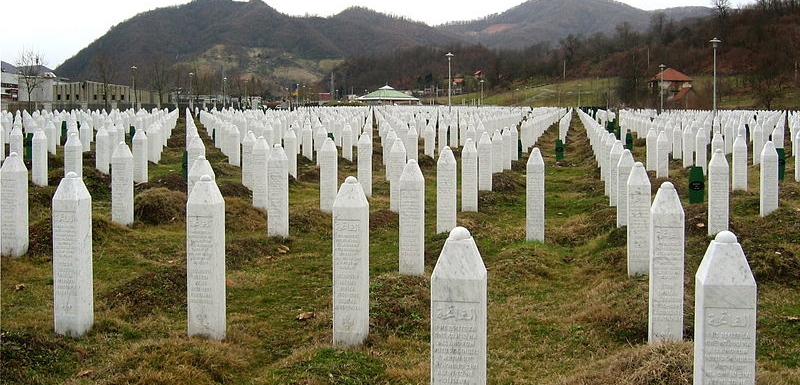The views and opinions expressed on the website are those of the authors and do not necessarily reflect the views or opinions of Niagara Foundation, its staff, other authors, members, partners, or sponsors.
By Tuba Eldes, Center for Interfaith Engagement Intern
July 10, 2015
As history as our witness, we have come to understand that the past is of recurrence. Religious and ethnic intolerance, exploitation of human rights, and restricted freedom have been persistent themes of history. Despite our knowledge of this, we are still unsuccessful in preventing global atrocities and are unable to recover from the reminiscences. For those who carry the weight of animosity, the Srebrenica massacre of the Bosnian War comes to mind.
With Russia’s recent veto, Srebrenica isn’t officially recognized to be a “genocide” by the United Nations. However, it is noted to be the worst atrocity in Europe after World War II. The massacre began on July 11, 1995, when Serbian troops invaded Srebrenica, at the time a Bosnian Muslim enclave protected by United Nations, and killed 8,000 defenseless Bosnian Muslim women and men. To this day, the remains of the Srebrenica victims are found in masses and have yet to be identified after 20 years.
Navigating under the campaign of ethnic cleansing, Bosnian Serb forces (backed by the Serbian-dominated Yugoslav army) deported every Bosnian Muslim in Srebrenica and slaughtered the remaining. Besides the vicious acts of hatred, perhaps the most disturbing part of the war was the whole world turning a blind eye against the carnage. Blinding themselves to death polls of 300,000, Bosnia-Herzegovina was left to steadily bleed.
The crucial outcomes of the war have left the people of Bosnia-Herzegovina in devastation where memories and wounds have manifested in the lives of many people Although time is often the best healer, decades have not been enough to recover from Srebrenica. Every year is a reminder that war due to bigotry is the most inhumane cruelty for innocent civilians. To the Bosnian mothers that are forced to contain their pain within the perimeter of their hearts, to the children that suddenly became orphans, and to the wives who are left alone, you will never be forgotten for your bravery, patience, and durability against silent history. May God’s endless blessings be bestowed upon you…

